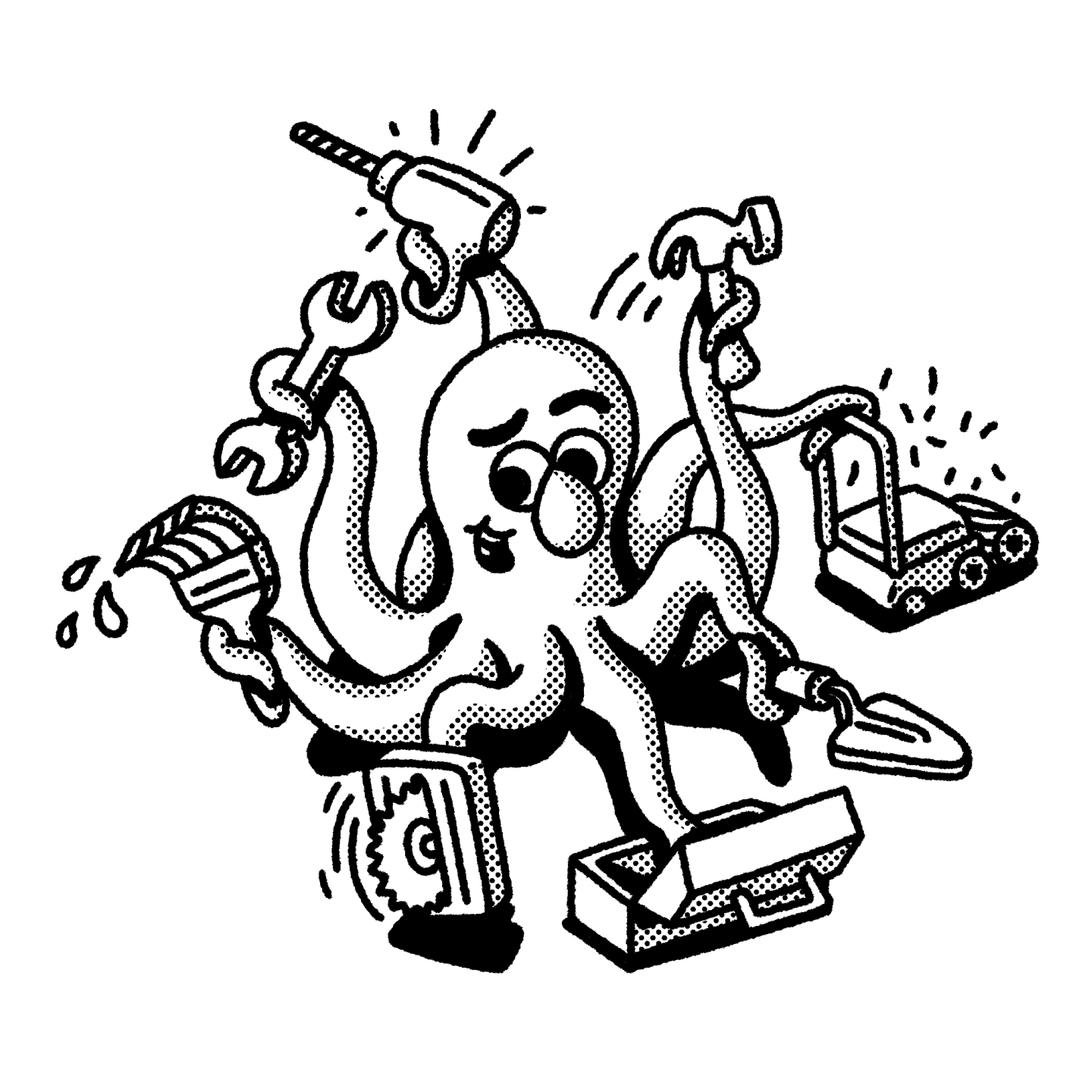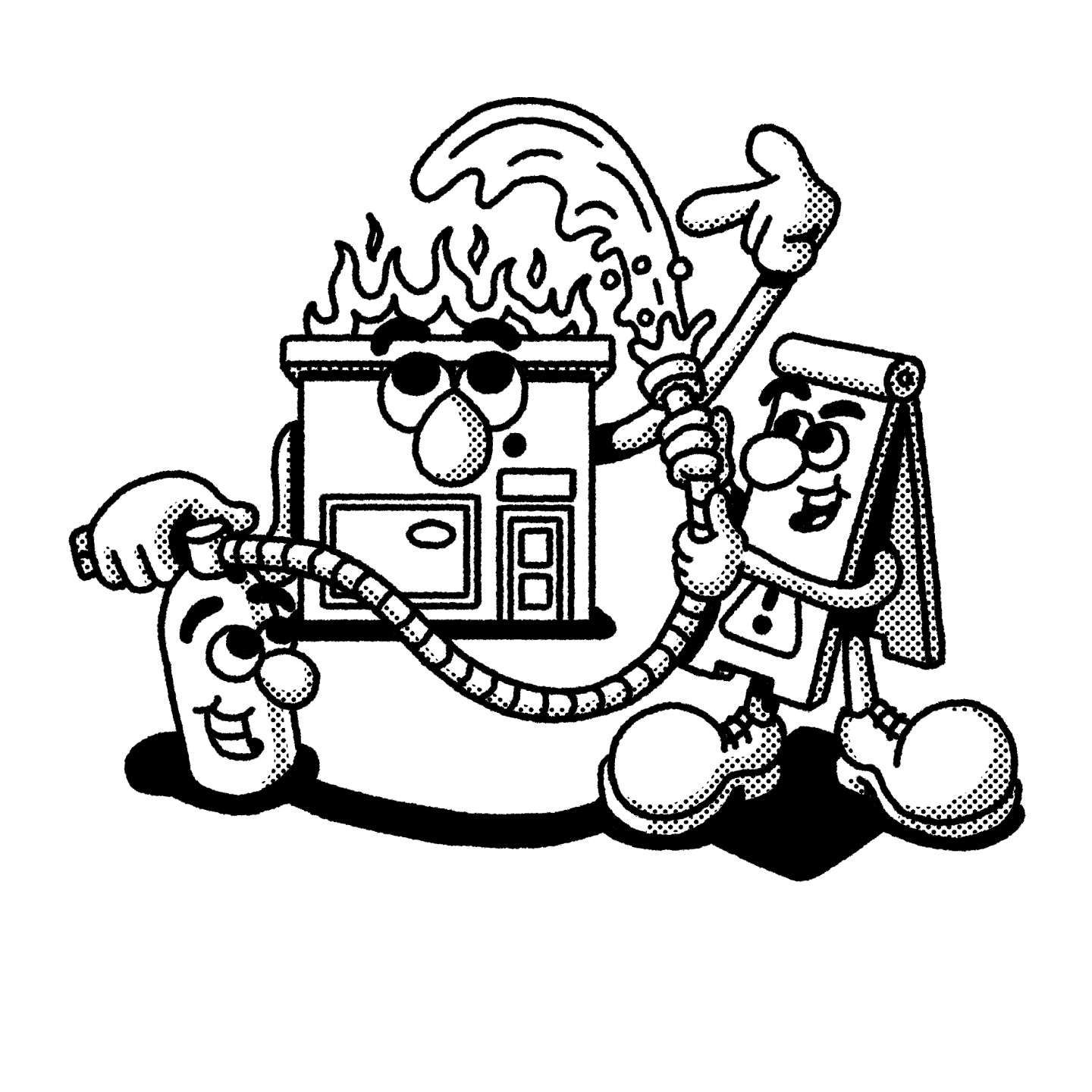What is liability risk?
You know there are risks involved in owning a small business, but what does it mean to be “liable”?
In short, you are considered “liable” when you or your employees can be held legally responsible for an action or inaction.
Examples of harm for which you could be held liable include:
- Harm to other people’s health.
- Damage to the property of others.
- Failing to uphold a business transaction like a written or oral contract.
Your liability risk is your likelihood of having legal action taken against you. In layman’s terms, how likely is it that someone will file a lawsuit against you or your business? Liability insurance coverage can help protect your business or personal assets if that happens.
If you’re a sole proprietor, risk management is crucial because the stakes can be especially high. Since there’s no legal separation between you and your business, your personal assets could be at risk for court judgments or settlements.
Small businesses often turn to liability insurance as part of a risk management strategy to help mitigate liability risks.
Liability insurance could help cover legal costs such as:
- Attorney fees
- Expert witness fees
- Court expenses
- Mandated payouts if a judge or jury holds your business accountable for a loss
What are some examples of liability risk?
Liability lawsuits can emerge from many common disputes, including:
Customer injuries or property damage
Slip-and-fall incidents on your property from customers or passers-by at your business could result in medical expenses, pain and suffering — and legal action against your business.
Similarly, if one of your workers causes damage to a non-employee’s property while working, you might also face legal liability. Either way, general liability insurance could help pay for damages.
Employees accuse a company of wrongdoing
Employees often file lawsuits against their employers. The reasons range from sexual harassment and unjust firing to breach of contract or discrimination based on federally protected status. Whatever the cause, defending against staff litigation can result in large financial losses. Employment practices liability insurance (called EPLI for short) could help.
Employee injuries
Most employers in most states are required to provide employees with workers’ compensation insurance to help cover medical care for job-related injuries and illnesses. However, injured employees can still sue their employer for these types of accidents, which can lead to litigation and expensive payouts.
Product failures
If you sell a product to someone who gets injured or suffers property damage while using it, they might seek to recoup a financial loss in court. Product liability cases can be disruptive because they can lead to class action lawsuits involving several injured consumers. In this situation, product liability insurance could help.
Professional mistakes
Business owners or employees don’t have to injure someone or damage their property to be found liable for damages.
Accusations of a professional error that cost your client money could be grounds for a lawsuit — whether you’re found liable or not. If your professional work violates your standard of care or fails to comply with regulations or contract provisions, you may be on the financial hook for damages. In this situation, professional liability insurance or errors and omissions insurance could help.
Libel or slander
When business owners or employees make false claims about an individual or organization, they could get sued for defamation. Libel refers to false statements made in print; slander applies to oral statements that damage a third party’s reputation. Either allegation can result in litigation and large financial settlements. You can get some protection from both as part of your general liability policy.
Landlords upset with small business tenants
If your landlord claims your business caused damage to their property, you could be held liable for repairs.
Cybersecurity breaches
Small businesses could be held accountable for electronic data theft or disclosure of private customer information.
If your customer or vendor data is stolen from your systems and published elsewhere, the data owners could sue your business. Your company could also face the costs of regulatory compliance and credit monitoring for your customers with compromised data.
In addition, you could take a financial hit if you’re the victim of wire fraud, a ransomware attack or other similar crimes. Look for cyber insurance for potential protection against these and other incidents.
Completed operations incidents
Sometimes damages don’t arise until after the job is done.
For example, a construction contractor might successfully finish a project with no onsite injuries or damages. But months later, damage from faulty electrical or plumbing work might surface. Such incidents can result in the building’s owner suing the contractor for damages.
8 types of liability insurance
Common liability insurance policies include:
1. General Liability insurance
This common form of liability coverage can help cover bodily injury, property damage and advertising injury that you inflict on anyone who is not an employee. General liability insurance can also help cover vicarious liability claims to help protect you against some of the mistakes of employees.
2. Professional Liability insurance
Professional liability insurance can help protect those who sell their knowledge or expertise for a fee, such a real estate agent or an accountant. This form of insurance activates if you make a professional mistake that ends up costing your client money.
Like other forms of liability insurance, this type of insurance coverage can help with legal expenses and payouts resulting from judicial proceedings.
3. Product Liability insurance
Product liability insurance can be helpful if your business makes or sells a defective product that harms a customer or causes them property damage. If your insurer approves your claim, your policy could help shield you from the financial aftermath of judicial action.
4. Cyber insurance
Cyber insurance can help protect against incidents that divulge private customer data, such as a data breach. This insurance coverage can be especially useful in highly regulated industries such as healthcare and financial services, where data breaches can result in substantial losses, including reputation loss.
5. Employers Liability insurance
If sick or injured workers sue their employer for damages, employers liability insurance, a benefit of workers’ compensation insurance, could help provide funds to cover legal services and financial settlements during employer/employee disputes.
6. Employment Practices Liability insurance (EPLI)
When employees allege wrongful termination, sexual harassment or benefit plan mismanagement, EPLI coverage can help power a legal defense for covered losses.
7. Liquor Liability insurance
If you serve alcohol at a restaurant, bar, catering company or otherwise serve alcohol as part of your business, you could be held responsible for intoxicated customers who cause damages to others. Liquor liability insurance may help shield you, your employees and your business from some of the costs of property damage or injuries that your intoxicated customers cause.
8. Commercial Auto insurance
Whether you have a single car for work or a small fleet of delivery vans, commercial auto insurance can help protect your business from unexpected expenses if you or your employees are involved in an accident while driving for work.
How can you reduce your liability risk exposure?
Business insurance is one way to help control your risk of liability, but it’s not the only way. Keep these six tactics in your back pocket to help minimize your risk exposure:
- Research and comply with all state and federal laws around your business operations and compliance. Put a safety program in place to show you’re committed to preventing injuries and accidents.
- Document your company’s risks in a comprehensive risk management plan and share it with your team.
- Train employees to identify and remove safety hazards.
- Take advantage of training workshops available from the Equal Employment Opportunity Commission (EEOC) to prevent employment decisions based on race, religion, gender or disability.
- Keep detailed records of your entire product lifecycle, from design and manufacturing to customer fulfillment, to monitor for product liability risks. Design and deliver products with customer safety in mind.
- Treat customer complaints seriously. Document them in writing and resolve issues to help prevent future incidents.













